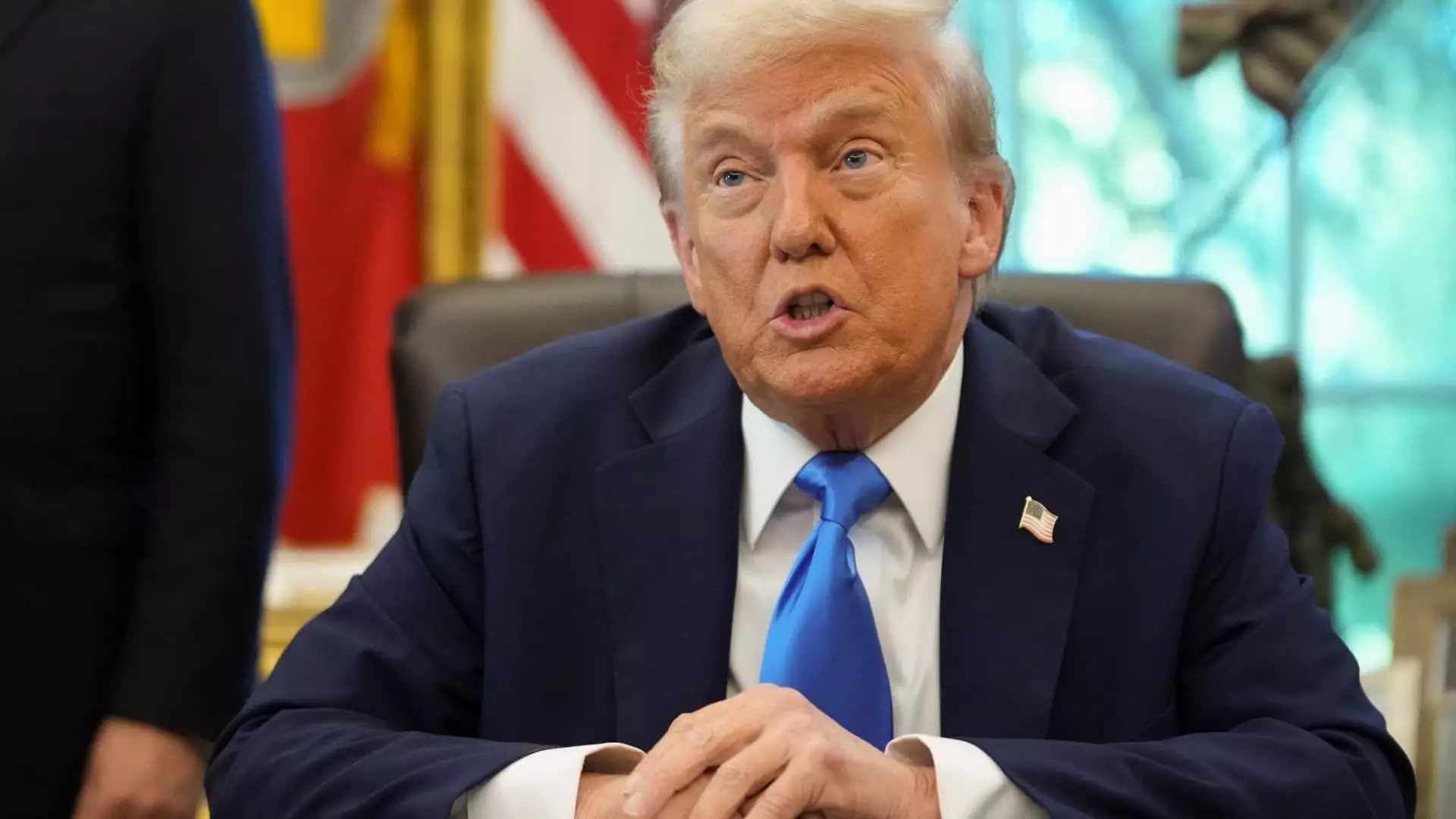The recent announcement by President Donald Trump to impose a hefty $100,000 fee on new H-1B visa applicants marks a dramatic departure from America’s traditional openness to foreign talent. This policy shift signals a stark stance against the nation’s long-standing reliance on highly skilled immigrants who fuel its technological innovation and economic growth. While the stated objective is to protect American workers and curb systemic abuses, the reality paints a more complex picture—one that threatens to undermine the country’s competitive edge in global markets.
By targeting new applicants, the move appears aimed at discouraging corporate reliance on the H-1B program rather than addressing concerns through more nuanced reforms. The proposed fee, though not to be equated with an annual tax, is significant enough to create a chilling effect on companies that rely heavily on international talent, particularly from India and China. Major firms like Amazon, Microsoft, and Google have already begun advising their H-1B employees and associated personnel to remain within U.S. borders, signaling unease and uncertainty about the future. This is more than a bureaucratic hiccup—it’s a potential brain drain that could leave American tech and finance sectors scrambling for alternative talent pipelines.
The Economic and Cultural Toll of Restrictive Policies
The ripple effects of such a policy extend beyond corporate balance sheets. For nations like India and South Korea, which supply a significant portion of H-1B professionals, the announcement stirs diplomatic and economic anxieties. India’s Ministry of External Affairs explicitly noted the potential disruption to families and industries, emphasizing the shared interests of innovation and competitiveness. These concerns are well-placed, considering the immense cultural and technological contributions these immigrant communities provide.
The foreign governments’ reactions highlight a broader challenge: America’s attractiveness as a destination for top-tier global talent is increasingly at risk if such barriers become entrenched. The human aspect cannot be overlooked—families are intertwined with these visa processes, and sudden policy shifts threaten personal stability, mobility, and career trajectories. For the U.S., this could translate into a decline in the diversity of ideas and innovations that have historically driven its technological supremacy.
Is This a Strategic Misstep or Misguided Patriotism?
From a policy perspective, the administration’s narrative frames this move as a means to prioritize American workers, combat system abuse, and set fair wage standards. Yet, in practice, it appears more like a strategic retreat from global leadership in technology and talent. The United States has long benefited from its openness to foreign innovators—an openness that has attracted top talent, fostered entrepreneurship, and seeded the very technological advancements that power modern life.
One cannot ignore the irony: in an era defined by global interconnectedness and digital dominance, erecting such formidable barriers might stifle the very innovation the policy claims to protect. High-skilled immigrants are not merely workers; they are entrepreneurs, researchers, and pioneers whose contributions often lead to breakthroughs with broad societal impacts. Curtailing their entry threatens to diminish America’s technological lead and economic dynamism.
Moreover, the policy’s timing is suspect. As the nation battles economic uncertainty and geopolitical tensions, retreating into protectionism could isolate it further. The global competition for talent is fierce, and countries like Canada, Australia, and even parts of Europe are actively seeking to attract the same high-caliber individuals that the U.S. aims to restrict. Failing to recognize this, or worse, choosing to barricade against it, places American leadership at risk of permanent erosion.
While protecting American workers is a commendable goal, the path chosen here risks undermining the very foundation of the nation’s innovation economy. High-skilled immigrants have been instrumental in shaping America’s technological prowess; to dismiss their value is to risk stagnation. Instead of embracing exclusionary policies that threaten to drive away top talent, a reevaluation rooted in fairness, efficiency, and long-term competitiveness would serve the country better.
The proposed fee acts as a wake-up call—not just for policy-makers, but for the entire American ecosystem that depends on global talent. Balancing national interests with the undeniable benefits of diversity and innovation requires a nuanced approach, not blunt punitive measures. As the world evolves into an interconnected digital landscape, America must choose whether to lead in collaboration or fall behind through isolation. The economic future hinges on that decisive choice.

